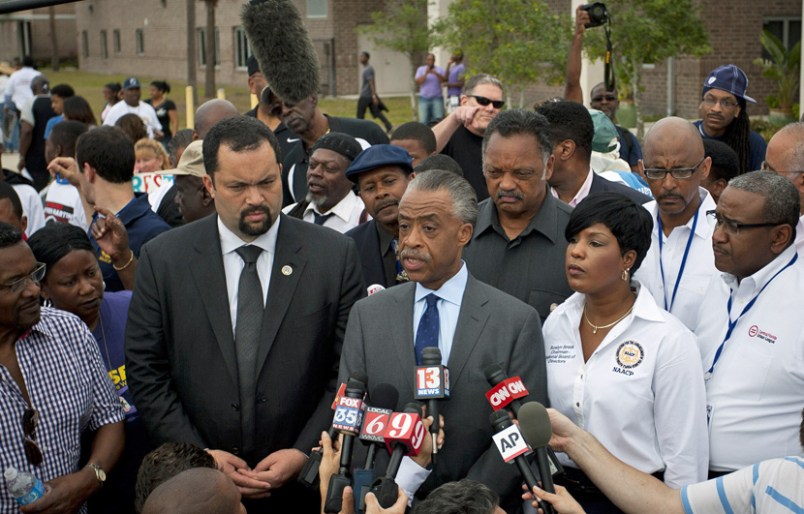The shooting of unarmed Florida teen Trayvon Martin was the first story of 2012 to receive more news coverage than the race for the White House. But a new Pew Research Center study shows a wide racial and partisan divide in reactions to the coverage.
Fifty-eight percent of black respondents cite the Martin case as their top story, compared to 24 percent of whites. And 56 percent of Republicans surveyed say there has been too much coverage of the case, while 25 percent of Democrats say the same.
The Martin shooting has slowly grown from local story to national issue, creating a debate over Florida’s “Stand Your Ground” law, legislation that allows people who feel threatened to use deadly force in self defense, and laws like it. Rev. Al Sharpton — a civil rights icon and MSNBC host — has led the charge in Sanford, appearing often with Martin’s parents and marching in rallies demanding justice for the teen’s premature death. The shooting rose to the presidential level when Obama last month called the death a “tragedy,” adding that if he had a son, “he’d look like Travon.”
It has primarily been a cable news story, said Carroll Doherty, associate director at the Pew Research Center. After the story exploded, Sharpton moved his radio and TV shows to Florida to cover the case. MSNBC and CNN plugged “exclusive” interviews with witnesses and family members in hopes of unearthing new facts in the case.
While the Martin story was the first of 2012 to get more coverage than the presidential election, coverage of the Supreme Court hearings on the health care reform law last week edged the Martin coverage 19 percent to 18 percent, according to Pew’s numbers.
Overall, 30 percent of respondents say they followed the Martin story more closely than any other story. The Supreme Court hearings last week came in second at 15 percent. Democrats, regardless of race, are more likely to follow the case than Republicans, according to the study.
“Seeing the reaction, it says as much about media’s choices as it does the story itself,” Doherty told TPM.






